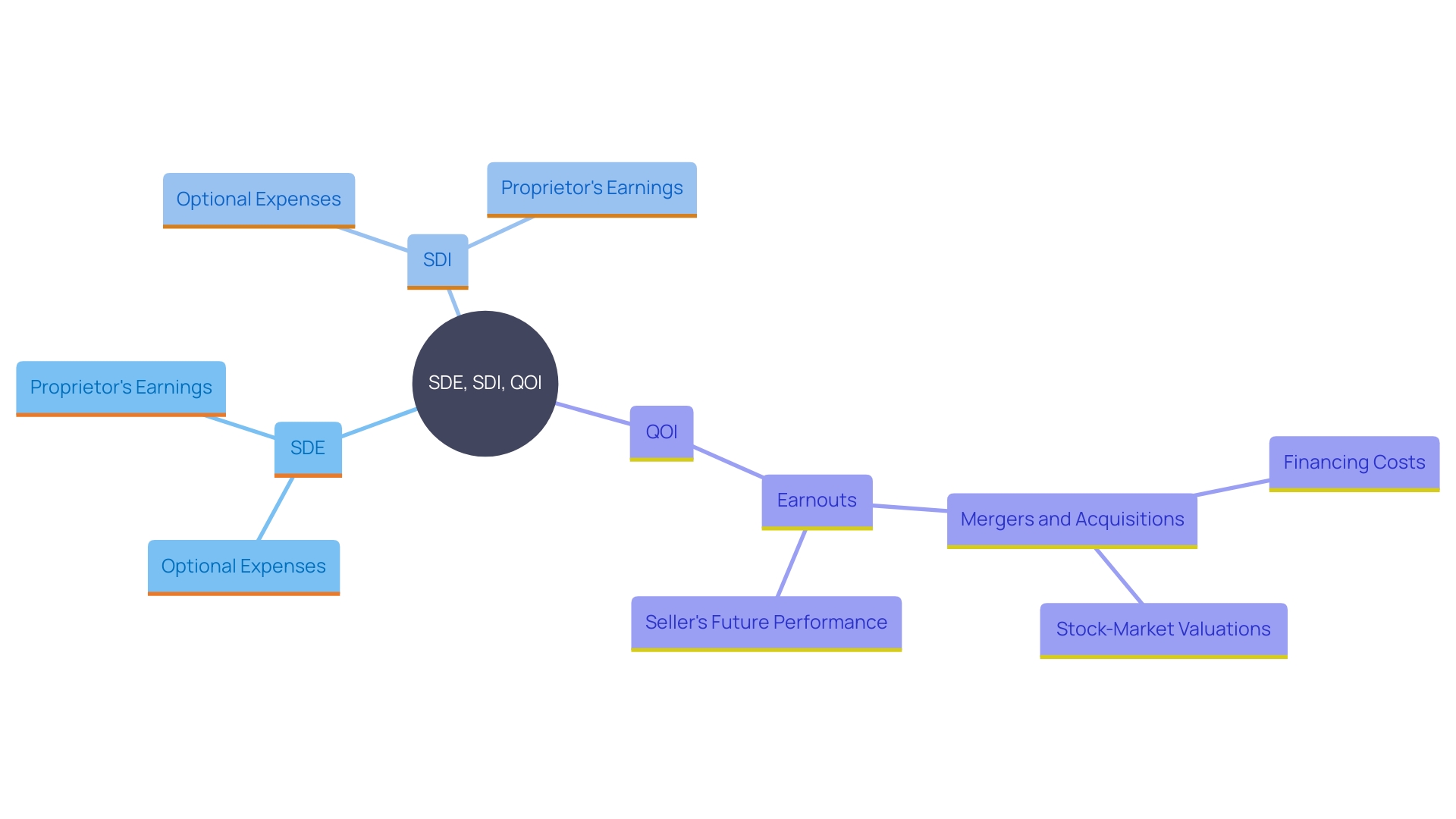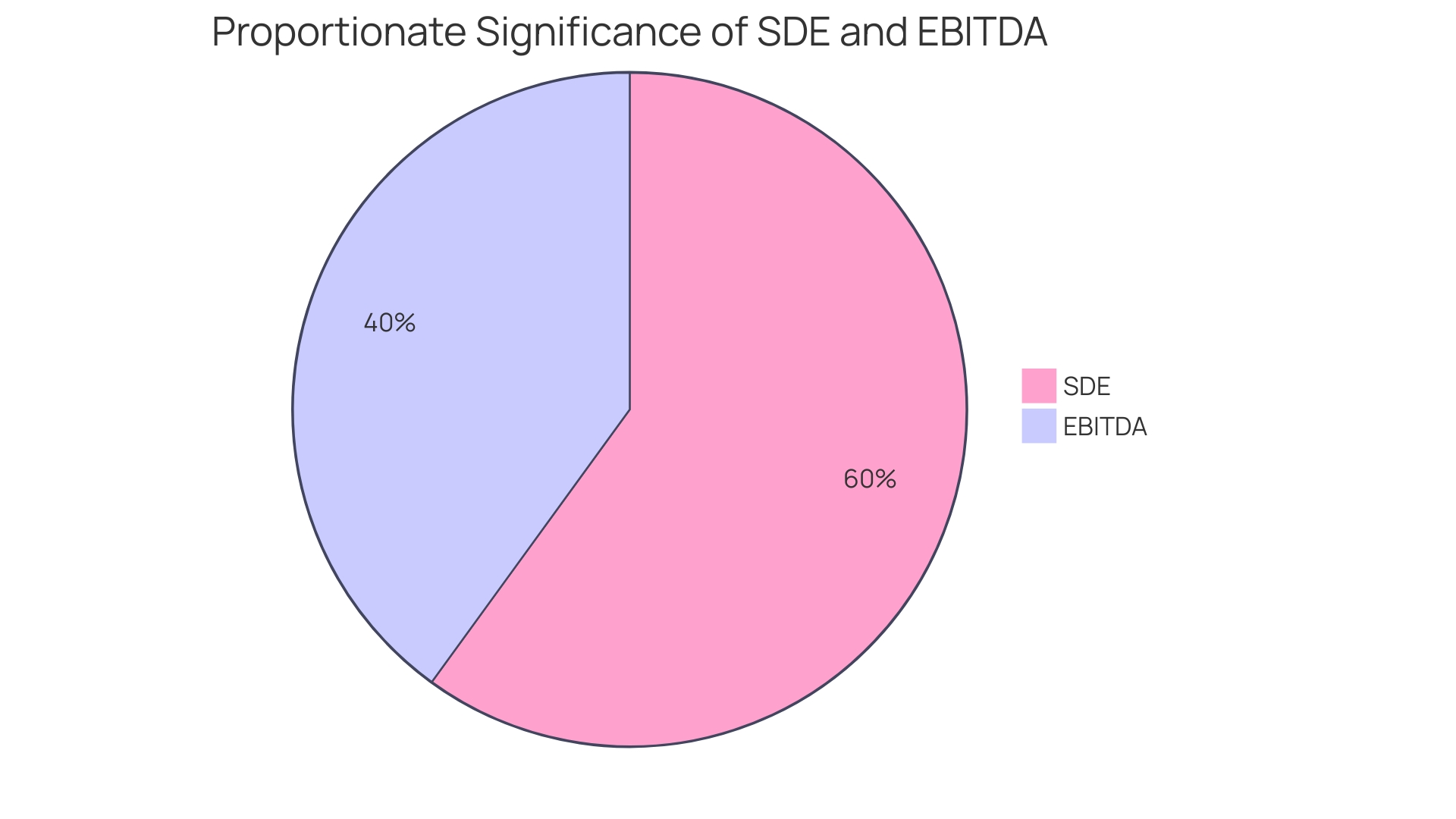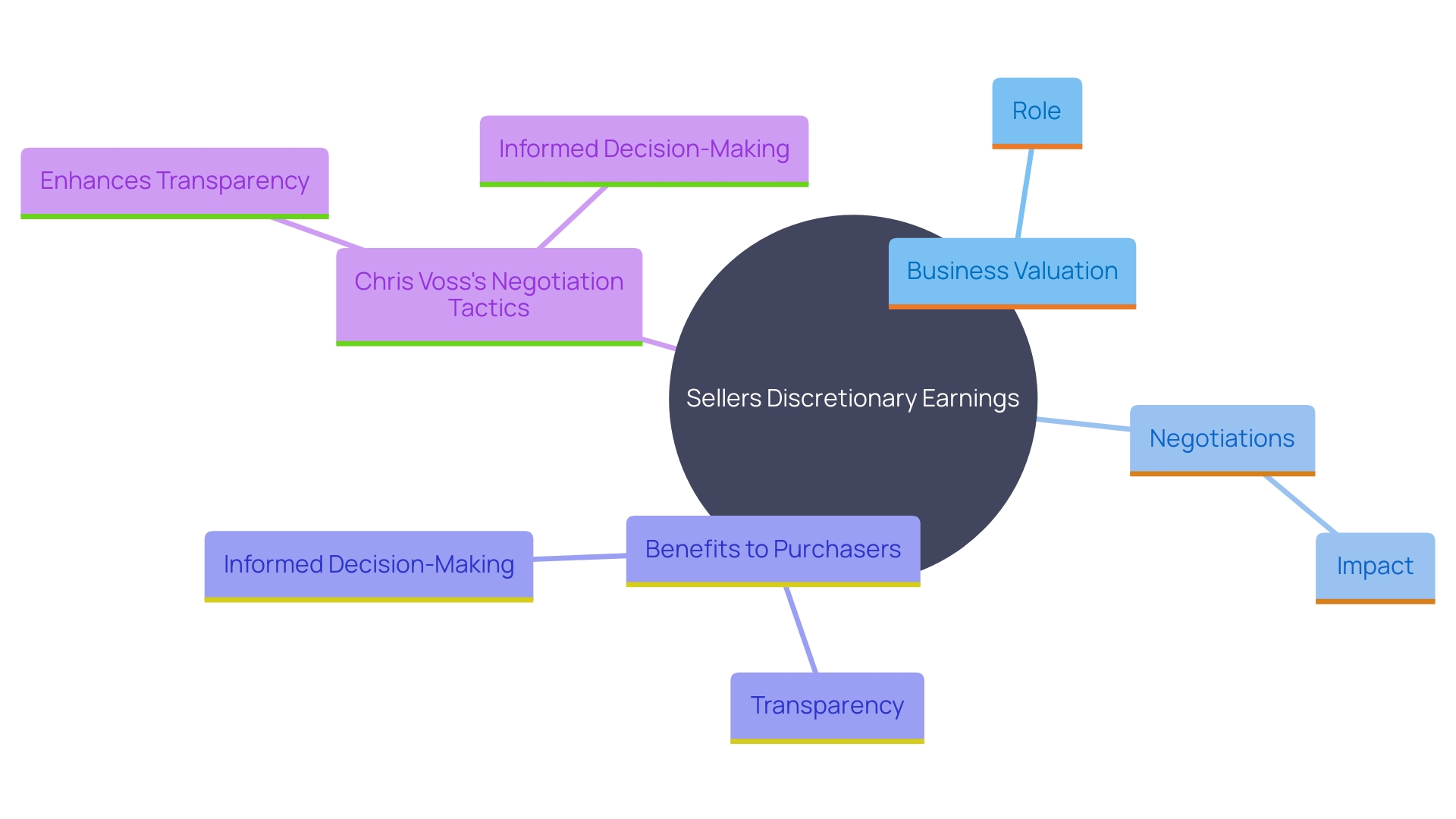Introduction
In the world of buying and selling businesses knowing about Sellers Discretionary Earnings (SDE) can make a difference. This financial measure shows the profit of a business by adding up net income and discretionary costs. It also gives an understanding of the financial rewards a business owner gets from their company. For buyers understanding SDE is crucial as it unveils the true cash flow accessible which can be higher, than the net income indicated in financial reports.
Understanding this information is crucial when assessing the stability and reliability of earnings performance during a Quality of Earnings (EOE).
Furthermore the growing prevalence of earnouts in mergers and acquisitions – in which a segment of the deals worth is contingent upon the sellers performance – underscores the importance of comprehending SDE even more deeply. This understanding empowers buyers in evaluating forthcoming profits with precision and making informed choices that resonate with their strategic objectives ultimately enhancing value maximization. Whether contemplating a sale of a business or undertaking a sizeable corporate merger SDE stands as an essential tool, in ensuring transparent well informed and successful transactions.
What Does SDE Stand for in Business?
'Sellers Discretionary Earnings (also referred to as SDE) play a role in evaluating how financially sound an enterprise is and how appealing it is to prospective buyers.'. It essentially reflects the financial benefit that an entrepreneur gains from their venture by combining net income and optional expenses. These optional expenses are typically factored back into the earnings. Include elements such as the proprietor's earnings, individual benefits, and one-time expenses that contribute to a clearer understanding of the true profitability of the enterprise.
"It's important for buyers to grasp the concept of Sellers Discretionary Income (SDI) as it shows the cash flow at an individual's disposal which can often be higher than the net income noted in financial documents. The detailed perspective aids buyers in evaluating the consistency and dependability of profits to conducting a Quality of Income (QOI) evaluation. Quality of Income delves into a company's revenue streams ensuring they are consistent and sustainable while also examining expenses, against industry standards.". Buyers are well prepared to make decisions with this detailed analysis that helps reduce the risks linked to financial uncertainties.
Furthermore, as earnouts are increasingly being utilized in mergers and acquisitions. A scenario where a segment of the transactions worth's dependent on the future performance of the seller. Possessing a thorough comprehension of SDE grows in importance. This knowledge empowers buyers to assess the prospects for profits and formulate informed decisions that are in sync, with their overarching objectives ultimately leading to maximizing value.

Definition and Explanation of SDE
As a small enterprise proprietor seeking to sell your company, Sellers Discretionary Income (SDI) is a metric that illustrates the profits of your company prior to deducting one-time expenses such as interest, taxes, and depreciation. It provides an overview of the financial health of your company by considering the proprietor's salary and benefits. This enables potential buyers to evaluate the profitability of the company as a whole. Paul from RCReports emphasizes the importance of compensation and accounting, for non operational costs to conduct a precise financial evaluation that showcases the company's true value and facilitates a successful sale process.

Key Differences Between SDE and EBITDA
When evaluating performance and financial health metrics such as SDE (Sellers Discretionary Earnings) and EBITDA (Earnings Before Interest Taxes Depreciation and Amortization), it's important for enterprises since SDE takes into account compensation and discretionary expenses that are essential when the principal figure plays a significant role in the operations. This offers insight into the actual earning capacity of entities where personal and operational finances are closely connected.
However EBITDA offers an insight into how efficiently a company operates as it removes expenses related to ownership which makes it particularly beneficial for bigger corporations. This indicator concentrates on the profitability of the company by eliminating non operational elements and provides a more standardized assessment of its performance. This differentiation is crucial; while SDE shows how closely linked an owner's choices are, with the aspect of the enterprise, EBITDA offers investors a clearer perspective of operational efficiency.
It's crucial to grasp these distinctions for an evaluation of an enterprise's worth. For instance, an enterprise with growth prospects may emphasize expansion and pioneering ideas over present earnings. This strategy is evident in tech and sustainable energy firms that prioritize enlarging their market reach and competitive edge instead of instant gains. Therefore evaluating a company value based on SDE or EBITDA can offer profound insights, into its financial standing and future potential.

Importance of SDE in Business Valuation
When valuing a business – small and mid sized ones – Sellers Discretionary Earnings (often referred to as SDE) play a significant role in the process. This metric provides purchasers a practical perspective on the income they might anticipate by taking into account how much the proprietor impacts the daily activities. Unlike financial measures that may overlook certain costs or owner specific perks as one off items. SDE factors in these elements for a more accurate depiction of actual profits. This transparency is crucial during negotiations as it helps justify the selling price based on performance rather, than hypothetical forecasts. Chris Voss is a known expert, in negotiating who highlights the importance of having solid negotiation tactics in influencing the outcome of a sale positively. Employing SDE not boosts transparency but also results in better informed and self assured decision making when purchasing.

Conclusion
It's crucial for business owners and potential buyers to grasp the concept of Sellers Discretionary Earnings (SDE). This financial measure offers a look at a companys profitability by taking into account net income and flexible expenses like owner pay and personal perks. Looking at things from this encompasssing angle not only helps assess the financial well being of a business but also uncovers the actual cash flow accessible to owners. Often more, than what conventional financial documents show.
The difference between SDE and other indicators such as EBITDA highlights the significance of this metric. EBITDA emphasizes effectiveness by omitting expenses related to ownership. On the hand SDE reflects the interconnectedness of personal and business finances providing a clearer view of a companys potential earnings. This is especially useful, for medium sized businesses where the owners impact is substantial.
With this information, at hand purchasers are able to make informed choices that support their long term objectives.
The importance of Sellers Discretionary Earnings (SDE) is becoming increasingly evident in the changing realm of mergers and acquisitions as time progresses forward and circumstances shift around us. The rising trend of utilizing earnouts in deals – a mechanism where a portion of the transactions value's contingent upon the sellers future performance – underscores the critical need for a thorough comprehension of SDE. Through the utilization of this measure of financial performance metrics buyers can evaluate profitability, with enhanced precision which ultimately results in maximizing value effectively.
In summary embracing the information offered by Sellers Discretionary Earnings not only promotes openness, in deals but also gives all stakeholders the ability to handle the intricacies of assessing a business with certainty.




